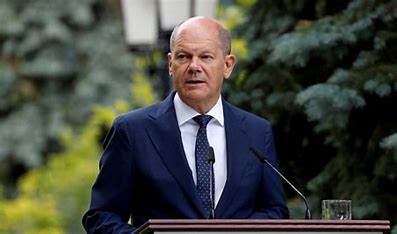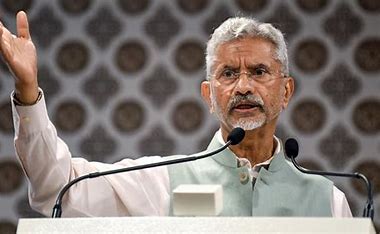
The unrest and ruckus created over the recent farm laws has attempted to dismantle the position of parliamentary sovereignty in India. In this post I have attempted to harmonious the fundamental constitutional principles to upheld the parliament supremacy and accordingly elaborated on the need to upheld the public trust in the constitutional institution particularly in the backdrop of ongoing protest over the enactment of recent Farm Laws
We the people of India, the quote enshrined in the preamble of Constitution of India has a paramount significance especially from the perspective of Indian democracy. This quoting lays down the direction to the citizens of India to endorse the preambular objective of Constitution of India and upheld sovereignty. Indian democracy is one of the largest democracies in the world as compared to others. The question of determining the validity of the recent Farm Laws, post its enactment absolutely falls in the jurisdiction of Constitutional Courts of India. Indeed, it is celebrated fact, that the art of criticism is the representation of efficacious democracy, however the unsubstantiated and unrestrained criticism in the arrangement of relentless agitations is detrimental for the Indian democracy.
The violent and unlawful protest demonstrated on the eve of Republic day and the firm stand taken by the agitators and the political parties for repealing the farms laws is completely an impetuous attempt to undermine and diminish the faith of the citizens of India in the public institutions. No citizen or person by any means has a right to declare any Law as unconstitutional or unlawful unless proven and scrutinized by Constitutional Courts of India. Whereas, on the other side, the constructive criticism is always appreciated in the democracy as it strengthens the preambular object of the Constitution, but what has been noticed from the past trends and ongoing agitations, the same is not followed and violent nature adopted by the agitators has time and again has showcased the disrespect over the public institutions i.e parliament or judiciary.
As witnessed in recent times, the mere participation of the external forces through the channel of social media in the affairs of the country leaves no doubt but completely amounts to a threat to Indian democracy in the coming times. The Indian Army and Indian Farmers, the two sides of the same coin, truly depict the strong position of India at a global level. Thus, it can be very well induced that no individual or citizen can stand against the farmers of India. Additionally, the support and sympathize approach in the interest of the farmers is always admired in India. However, the critics of the farm laws have exhibited a progressively alarming trend in voicing their opinions. Such an approach embraced by the agitators merely degrades the sanctity of democracy and sets a wrong precedent for the future enactments. On the other hand, likewise every other citizen of the country and the associations, the farmers do have the rights to voice their opinions in light of any kind of injustice caused to them. Although the contours of peaceful protest remain largely undefined in the Indian context, it is clear and well anticipated that the majority of the protests in India are facilitated by the political organizations. The parliament in its own edifice is a body of elected representatives meant to offer their collective view on the issues pertaining to national and public importance.
Therefore, rather than crafting a misconception of law in the mind of the general public, the political parties and representatives of people of either sides shall enthusiastically participate in the debates, discussions and deliberations in parliament specifically in the matters of public importance. In the absence of such deliberations of discussions, the respective bills suffer from legislative deficit.
In the backdrop of Constitutional Law, no power is absolute in nature. Similarly, on the same line, no institution is perfect, the parliament is not different in that case. Therefore, to carve out the ambiguities in the Laws which are enacted by the parliament, the agitators should hold the patience unless it is scrutinized by the Court of Law. The judiciary, Legislature and Executive are recognized as the three important pillars of our Indian democracy. The constitutional framers have made precise attempts to strive and maintain the balance between the Judiciary, Legislature and Executive. Thus, this becomes imperative for the citizens to comply with the norms and procedures established in the Constitutions of India. Additionally, it can be tacit that in situation where any state is not willing to implement any the law promulgated by the parliament, the same can be challenged before the court of law by invoking court’s original jurisdiction under Article 131 of the Constitution, thus such practices gives a scope for juridical review to examine the Constitutionality of the Law enacted by the parliament.
Eventually, Article 19(1) of the Constitution of India protects the rights of the protestors/agitators, however such rights are required to be exercised with utmost cautions and without undermining the sovereignty or public order, however same is not seen in the ongoing agitations. As reiterated by the Supreme Court of India on multiple occasions, freedom of expression is not absolute and it is subject to reasonable restrictions as mentioned in Article 19 (2) of the Constitution of India. The Supreme Court, recently in the Shaheen Bagh order has reiterated its stand that “Protest and Express dissent comes with certain duties and responsibilities, protest cannot be held anytime and everywhere”. The same precedent applies to the ongoing farmers protest which is causing an inconvenience to localities from commuting from their respective places. Although, it can be very well acknowledged that the legislative competence of the recent farm laws will be meticulously scanned by the Constitutional Courts in the upcoming times.
The Constitution is a living document whose main function is to keep constitutional principles intact. Constitutional principles, an ever-growing, all-inclusive notion is to supersede social or popular scruples of the general public at all points of time. Thus, the role of Courts is to interpret laws in a manner consistent with such progression and not averse to it, to ensure overall development and foster a sense of inclusiveness within society.
Hypothetically, even if it is assumed and anticipated that these farm laws are repealed in the coming times, such practice may set a dangerous precedent in the context of the Constitution of India. Thus there is a pressing need to strengthen the constitutional institutions with balanced and constructive criticism. This is only collectively possible only when WE THE PEOPLE OF INDIA do not undermine the faith and confidence of the citizen in the rule of law and uphold the same.















